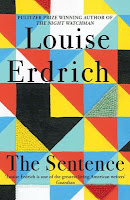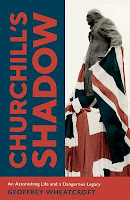NEW RELEASES
Kurangaituku by Whiti Hereaka $35Kurangaituku is the story of Hatupatu told from the perspective of the traditional ‘monster’, Kurangaituku, the bird woman. In the traditional story, told from the view of Hatupatu, he is out hunting and is captured by a creature that is part bird and part woman. The bird woman imprisons him in her cave in the mountains. Hatupatu eventually escapes and is pursued by Kurangaituku. He evades her when he leaps over hot springs, but Kurangaituku goes into them and dies. In this version of the story, Kurangaituku takes us on the journey of her extraordinary life – from the birds who sang her into being, to the arrival of the Song Makers and the change they brought to her world, and her life with Hatupatu and her death. Through the eyes of Kurangaituku, we come to see how being with Hatupatu changed Kurangaituku, emotionally and in her thoughts and actions, and how devastating his betrayal of her was.
The Fell by Sarah Moss $35Desperate for some respite from her teenage son during a period of quarantine in England's Peak District, a woman goes for a short walk on the moors. When she falls and injures herself, this triggers a mountain rescue effort and a recalibration of the participants' relationships with nature and with each other, during which the myriad anxieties of contemporary life are brought to the fore. A document of the inner life of our times from the author of Summerwater.
September 12: The third test and final protest of the 1981 Springbok tour, photography by Anthony Phelps, foreword by John Minto $85
A large-format book featuring over 50 superb photographs, many previously unseen, from the Springbok Tour protests of 1981, showing the people, marches, and often violent clashes between the police, protesters and spectators around Eden Park Photographed on the day of the 3rd rugby test match between New Zealand and South Africa at Eden Park in Auckland with some photos from earlier protest marches including the Day of Shame, the 22nd of July when the first match of the Tour was played. Limited edition of 100 signed copies.
Hei Taonga mā ngā Uri Whakatipu | Treasures for the Rising Generation: The Dominion Museum Ethnological Expeditions, 1919–1923 by Wayne Ngata, Arapata Hakiwai, Anne Salmond, Conal McCarthy, Amiria Salmond, Monty Soutar, James Schuster, Billie Lythberg, John Niko Maihi, Sandra Kahu Nepia, Te Wheturere Poope Gray, Te Aroha McDonnell and Natalie Robertson $75From 1919 to 1923, at Sir Apirana Ngata’s initiative, a team from the Dominion Museum travelled to tribal areas across Te Ika-a-Māui The North Island to record tikanga Māori that Ngata feared might be disappearing. These ethnographic expeditions, the first in the world to be inspired and guided by indigenous leaders, used cutting-edge technologies that included cinematic film and wax cylinders to record fishing techniques, art forms (weaving, kōwhaiwhai, kapa haka and mōteatea), ancestral rituals and everyday life in the communities they visited. The team visited the 1919 Hui Aroha in Gisborne, the 1920 welcome to the Prince of Wales in Rotorua, and communities along the Whanganui River (1921) and in Tairāwhiti (1923). Medical doctor-soldier-ethnographer Te Rangihīroa (Sir Peter Buck), the expedition’s photographer and film-maker James McDonald, the ethnologist Elsdon Best and Turnbull Librarian Johannes Andersen recorded a wealth of material. This beautifully illustrated book tells the story of these expeditions, and the determination of early twentieth century Māori leaders, including Ngata, Te Rangihiroa, James Carroll, and those in the communities they visited, to pass on ancestral tikanga ‘hei taonga mā ngā uri whakatipu’ as treasures for a rising generation.
Brickmakers by Selva Almada (translated by Annie McDermott) $34
Pájaro Tamai and Marciano Miranda, two young men, are dying in a deserted amusement park. The story begins almost at its end, just a little after the two main characters have faced off in a knife fight: the culmination of a rivalry that has pitted them against one another since childhood. The present in Brickmakers is a state of impending death, at moments marked by oneiric visions: Marciano is visited by the ghost of his father, who was murdered when he was a teenager, a father he had sworn to avenge, in a promise he could not keep. Pájaro is also visited, in a recurring nightmare, by his abusive father who disappeared years earlier. A rural tragedy in the great American tradition, a story of love and violence where everything is put at stake.
Above the Treeline: A nature guide to alpine New Zealand by Alan Mark $80
Long unavailable and now completely revised and extended, this wonderful well-illustrated book is the definitive guide to the alpine regions that comprise so much of New Zealand. An essential book (even if you already have the earlier edition).
Beginning in the fifteenth century with Christine de Pizan, who imagined a City of Ladies that would serve as a refuge from the harassment of men, the book reaches around the whole earth and through history to us, now, splashing about in the fourth wave. It goes beyond the usual white, Western story, attentive also to class, capitalism and colonialism, and to the other axes of oppression that intersect with sexism. Alongside Elizabeth Cady Stanton, who declared in Seneca Falls in 1848 the self-evident truth 'that all men and women are created equal', we find Sojourner Truth, born into slavery in New York in 1797, who asked 'and ain't I a woman?' Draws on poems, novels and memoirs, as well roaring manifestos.The Sentence by Louise Erdrich $38
Recently released from a decades-long prison sentence, Tookie - a headstrong and deeply wronged Ojibwe woman with a chequered past - must make a life for herself in a changed, charged world. During her incarceration, her only lifeline were the books she 'learned to read with murderous attention', so when she finds work at a local independent bookshop she also finds kindred spirits among an eclectic, often eccentric, community of fellow booksellers and readers.When the bookshop's most persistent customer, Flora, dies, it soon becomes clear this revenant has unfinished business with Tookie in particular. Her search leads her right back to her roots and the stories her ancestors told; what Tookie unearths is a shocking personal revelation that resonates beyond her to a world in pain.
This wayfinding set of essays explores the overlap of being Sāmoan and a woman, as experienced 'from diaspora', by writer and critic Lana Lopesi. Writing on ancestral ideas of womanhood appears alongside contemporary reflections on women's experiences and the Pacific. These often deeply personal essays amount to a complex, rich and multi-layered book. Playful, speculative and far-sighted, these essays are written to support 'the narratives not yet written' and the new generations to come.
Maria's picking asparagus, Ramon's mum is watering the cucumbers, and a gaggle of kids are eating cherries fresh from the tree and even wearing some as earrings! Meet the many people of Fleurville, delight in their produce, learn their recipes, and find comfort in the cycle of the seasons. Another wonderful picture cookbook for children, with food from all sorts of family backgrounds, from the author of Lunch at No.10 Pomegranate Street.
He Pou Hiringa: Grounding science in Te Ao Māori edited by Katharina Ruckstuhl, Merata Kawharu and Maria Amoamo $15
This book brings together writing on the big questions about the role of Maori, tikanga and matauranga in shaping science and technological innovation. Written by Maori from diverse disciplines, it explores the potential for novel approaches, theories, methods and community engagement models in science and technology programmes. It calls for increased participation, initiative and leadership from Maori and presents the views of Maori thinkers on what technology and science mean for the future.
Futilitarianism: Neoliberalism and the production of uselessness by Neil Vallelly $55A proposal for countering the futility of neoliberal existence to build an egalitarian, sustainable, and hopeful future. If maximising utility leads to the greatest happiness of the greatest number of people, as utilitarianism has always proposed, then why is it that as many of us currently maximize our utility—by working endlessly, undertaking further education and training, relentlessly marketing and selling ourselves—we are met with the steady worsening of collective social and economic conditions? In Futilitarianism, social and political theorist Neil Vallelly tells the story of how neoliberalism transformed the relationship between utility maximisation and the common good.
Churchill's Shadow: An astonishing life and a dangerous legacy by Geoffrey Wheatcroft $60
An important book, not only reassessing the achievements—and failures—of Churchill's life and leadership, but examining the legacies of the 'Churchill myth' on all that has come after, from Tony Blair's eagerness to follow the United States into war in Iraq to the belief in British exceptionalism that underpinned Brexit.
The Amur River, Between Russia and China by Colin Thubron $40
Whatever Happened to Harold Absolon? by Simon Okotie $32
"Provocative, clear-sighted, richly textured and wonderfully readable, this is the indispensable biography of Churchill for the post-Brexit 2020s." —David Kynaston
In his eightieth year Thubron travelled the length of the river that divides China from Russia, using public transport where possible and sleeping where he could. In his inimitable elegant prose, he evokes the ordinary lives of those in a place of tension between superpowers.
Tender Is the Flesh by Agustina Bazterrica (translated by Sarah Moses) $35
Working at the local processing plant, Marcos is in the business of slaughtering humans—though no one calls them that anymore. His wife has left him, his father is sinking into dementia, and Marcos tries not to think too hard about how he makes a living. After all, it happened so quickly. First, it was reported that an infectious virus has made all animal meat poisonous to humans. Then governments initiated the 'Transition'. Now, eating human meat—'special meat'—is legal. Marcos tries to stick to numbers, consignments, processing. Then one day he's given a gift: a live specimen of the finest quality. Though he's aware that any form of personal contact is forbidden on pain of death, little by little he starts to treat her like a human being. And soon, he becomes tortured by what has been lost—and what might still be saved. A disquieting novel about how quickly atrocities become normalised.
"The novel is horrific, yes, but fascinatingly provocative (and Orwellian) in the way it exposes the lengths society will go to deform language and avoid moral truths." —Taylor Antrim, Vogue
Although ostensibly about the rather down-at-heel detective Marguerite's attempt to solve the disappearance of a public transport official, the book is more concerned with the hilariously pedantic examination of thought and language, as if clues to this or to some other existential mystery could somehow be found there.
"An absurdist comedy about overthinking." —Blake Morrison
Te Pakanga a Ngāti Rānaki me Te Ranga-Tipua (Avengers vs X-Men) by Jason Aaron, Brian Michael Bendis, Ed Brubaker, Jonathan Hickman, and Matt Fraction $50Kātahi anō te pakanga nui whakaharahara a ngā tuahangata nei ka whakamāoringia hei whakaputanga ki te ao mārama. Ngāti Rānaki me Te Ranga-Tipua – mai anō i te wehenga o Rangi rāua ko Papa ko rāua tonu ngā tauā tuahangata rongonui katoa – ka wera te umu pokapoka o te ao tukupū i tēnei pakanga turaki aorangi. Kātahi nei te pukapuka ko tēnei – he kohinga nō ngā pakiwaituhi hirahira katoa i tēnei tekau tau kua hori – e huihui mai ai a Tua Rino, a Kāpene Amerika, a Toa, a Kaiora, a Katipō, a Tama-Werewere, a Matihao, a Whatupihi, a Rangipō, a Te Autō me te huhua noa atu i tēnei pūrākau e rerekē katoa nei ō rātau āhua ā muri ake nei.
Iron Man, Captain America, Thor, Hulk, Black Widow, Spider-Man, Wolverine, Cyclops, Storm, Magneto and more in te reo Māori!

















No comments:
Post a Comment